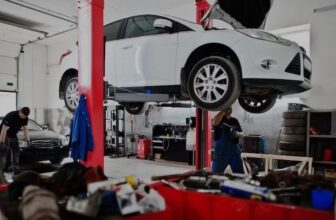
Lithium-ion batteries are revolutionizing the automotive industry and are poised to play a crucial role in the future of electric vehicles (EVs) in the United Arab Emirates (UAE). As the nation moves towards a more sustainable future, lithium-based batteries are emerging as the technology of choice for powering the next generation of vehicles.
1. The Rise of Lithium-ion Batteries in EVs
Lithium-ion batteries have become the preferred choice for electric vehicles due to their high energy density, which allows for longer driving ranges and improved performance. This characteristic is particularly important in the UAE, where consumers expect vehicles that can handle long distances and extreme weather conditions.
2. Advantages of Lithium-ion Batteries
• Energy Efficiency
Lithium-ion batteries offer superior energy efficiency compared to traditional lead-acid batteries, making them ideal for the UAE’s push towards electromobility. This efficiency translates to better range and performance for EVs on UAE roads.
• Longevity and Performance
Advanced lithium-ion battery systems are built for longevity and peak performance. This durability is crucial in the UAE’s harsh climate, ensuring that EVs can withstand high temperatures while maintaining their efficiency over time.
• Environmental Impact
The use of lithium-ion batteries in EVs aligns with the UAE’s sustainability goals. By powering vehicles with these advanced batteries, the nation can significantly reduce carbon emissions and create a more sustainable transportation ecosystem.
4. Innovations Driving the Future
• Solid-State Batteries
Research is underway to develop solid-state lithium batteries, which promise even greater energy density and improved safety. These batteries could potentially increase the range of electric cars by up to 60%, addressing one of the main concerns of EV adoption.
• Enhanced Cathode Technology
Scientists are working on improving lithium-ion battery performance through innovations such as special cathode coatings. These advancements could significantly boost battery efficiency and longevity.
5. UAE’s Commitment to EV Infrastructure
The UAE is actively investing in EV infrastructure to support the adoption of lithium-powered vehicles:
- Abu Dhabi and TAQA aim to install 70,000 EV charging points by 2030.
- Dubai’s Green Charger Initiative plans to expand the network of public charging stations from 370 in 2023 to 1,000 by 2025.
6. Challenges and Solutions
While lithium-ion batteries offer numerous advantages, there are challenges to address:
• Heat Management
The UAE’s high temperatures can affect battery performance. Manufacturers are developing lithium-ion batteries with improved heat resistance to ensure optimal function in the region’s climate
• Resource Availability
Concerns about lithium scarcity are being addressed through recycling initiatives and the exploration of alternative battery chemistries that complement lithium-ion technology.
Conclusion
Lithium-ion batteries are set to drive the future of electric golf cart vehicles in the UAE. With ongoing technological advancements, supportive government policies, and a robust charging infrastructure, the UAE is well-positioned to lead the transition to sustainable mobility powered by lithium-based battery technology.






